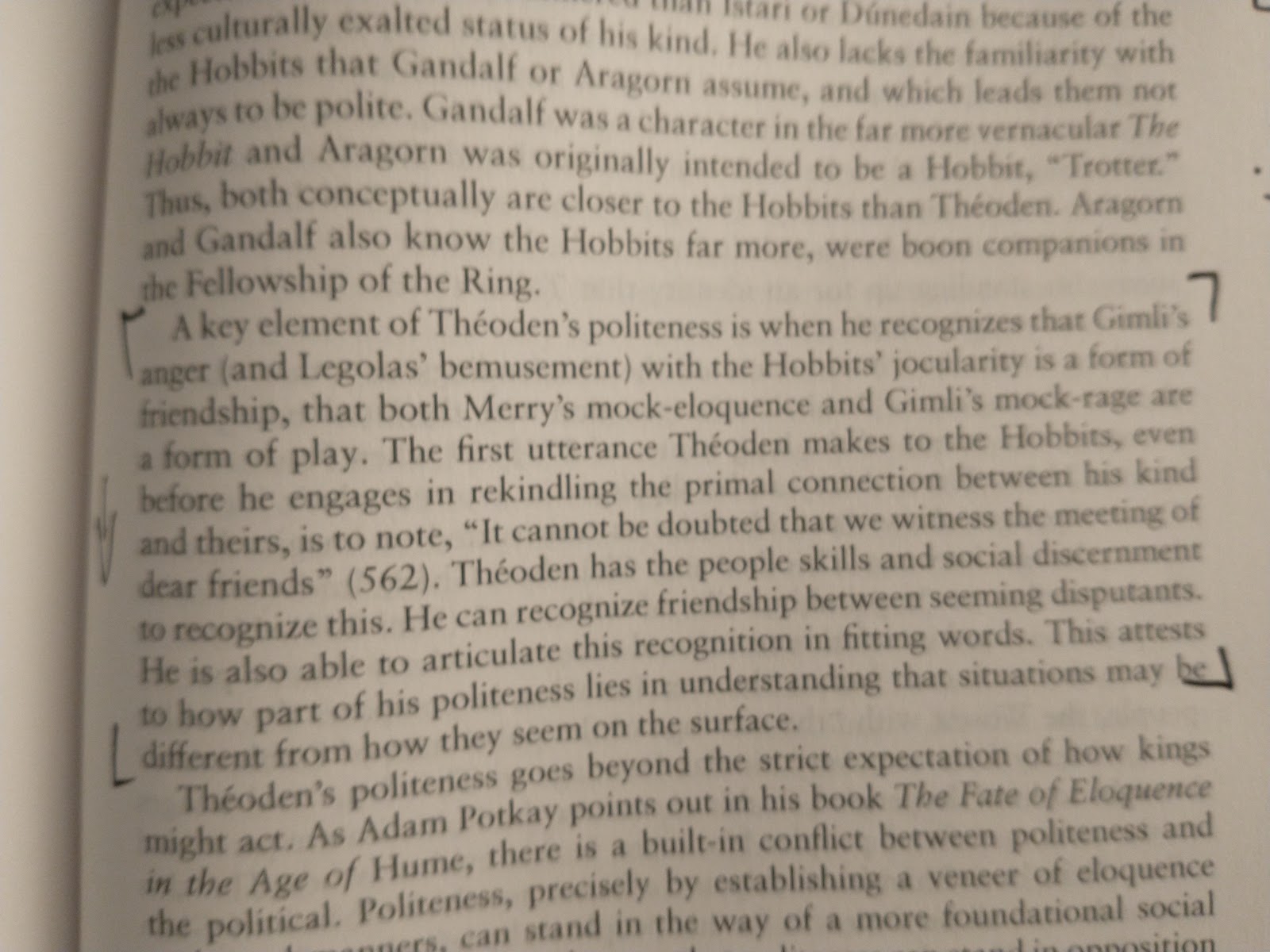A question posted online in a private group set me thinking about which hand Frodo wears the One Ring on. During The Lord of the Rings Frodo puts on the Ring six times: once in the house of Tom Bombadil; once at the Prancing Pony; once at Weathertop; twice on Amon Hen; and once in the Chambers of Fire within Mount Doom. The text mentions which hand he put it on only twice, but it's a different hand each time. That's the curious part.
The first time is on Weathertop:
Not with the hope of escape, or of doing anything, either good or bad: [Frodo] simply felt that he must take the Ring and put it on his finger. He could not speak. He felt Sam looking at him, as if he knew that his master was in some great trouble, but he could not turn towards him. He shut his eyes and struggled for a while; but resistance became unbearable, and at last he slowly drew out the chain, and slipped the Ring on the forefinger of his left hand.
(FR 1.xi.195, emphasis added)
As we know, putting on the Ring reveals him to the Ringwraiths, who attack at once, and the Witch-king wounds Frodo in his left shoulder with a Morgul-knife.
A shrill cry rang out in the night; and he felt a pain like a dart of poisoned ice pierce his left shoulder. Even as he swooned he caught, as through a swirling mist, a glimpse of Strider leaping out of the darkness with a flaming brand of wood in either hand. With a last effort Frodo, dropping his sword, slipped the Ring from his finger and closed his right hand tight upon it.
(1.xi.196, emphasis added).
In Rivendell Frodo is healed of the sorcerous wound to the extent that he can be, but Gandalf, and as we later learn (TT 4.iv.652), Sam, can see the effects.
Gandalf moved his chair to the bedside and took a good look at Frodo. The colour had come back to his face, and his eyes were clear, and fully awake and aware. He was smiling, and there seemed to be little wrong with him. But to the wizard’s eye there was a faint change, just a hint as it were of transparency, about him, and especially about the left hand that lay outside upon the coverlet.
(FR 2.i.223, emphasis added)
Even before Gandalf looks at him, Frodo has checked his left hand to see how it feels (2.i.221). Sam also takes Frodo's hand for the same reason when he enters subsequently (2.i.223). In both of these passages the text again specifies the left hand. The next time we can tell which hand he uses is in the Sammath Naur, but we don't learn it until Sam wakes up in "The Field of Cormallen." Now it is on his right hand (a different finger, too).
He sat up and then he saw that Frodo was lying beside him, and slept peacefully, one hand behind his head, and the other resting upon the coverlet. It was the right hand, and the third finger was missing.
(RK 6.iv.951, emphasis added)
A few other passages are also noteworthy. When Sam puts on the Ring while Frodo is a prisoner, he puts it on his left hand (TT 4.x.734). When Frodo and Sam use the phial of Galadriel against Shelob, each of them holds that in his left hand (4.ix.721, 729). In the case of the phial each already has a sword in his other hand. Consider also this passage from "Mount Doom," ten pages before Frodo claims the Ring and (as we can deduce from which hand is later missing a finger, Watson) puts it on his right hand:
Anxiously Sam had noted how his master’s left hand would often be raised as if to ward off a blow, or to screen his shrinking eyes from a dreadful Eye that sought to look in them. And sometimes his right hand would creep to his breast, clutching, and then slowly, as the will recovered mastery, it would be withdrawn.
(RK 6.iii.935-36, emphasis added)
That Frodo uses his left hand here as if to hide or defend himself, while it's the right hand that's reaching for the Ring, seems quite suggestive. So, although I am not going to speculate about which hand Frodo used the other four times he wore the Ring, or whether his putting it on different fingers on different hands means anything. I will suggest that on balance we may well ask if there's a connection between claiming the Ring and wearing it on the dominant hand, the hand that almost exclusively wields a weapon. For the Ring is a weapon.
--------------------
It may also be worth noting that when Tom Bombadil banishes the wight, he holds up his right hand. Also in Chapter Five of second edition of The Hobbit Bilbo reaches into his pocket and slips the Ring on his left hand (Annotated Hobbit 129, 130, 135). In the first edition Bilbo uses his left hand once (Annotated Hobbit 134). Neither edition mentions his right hand.










